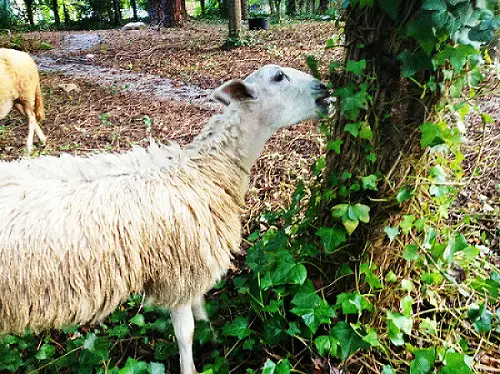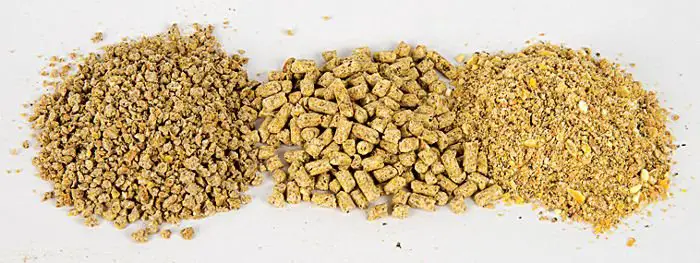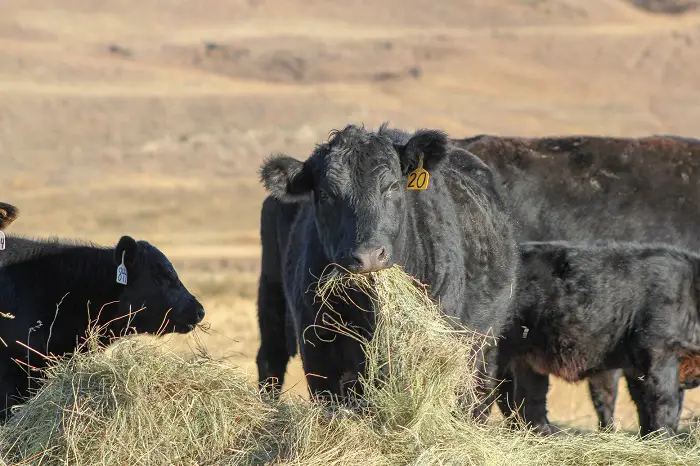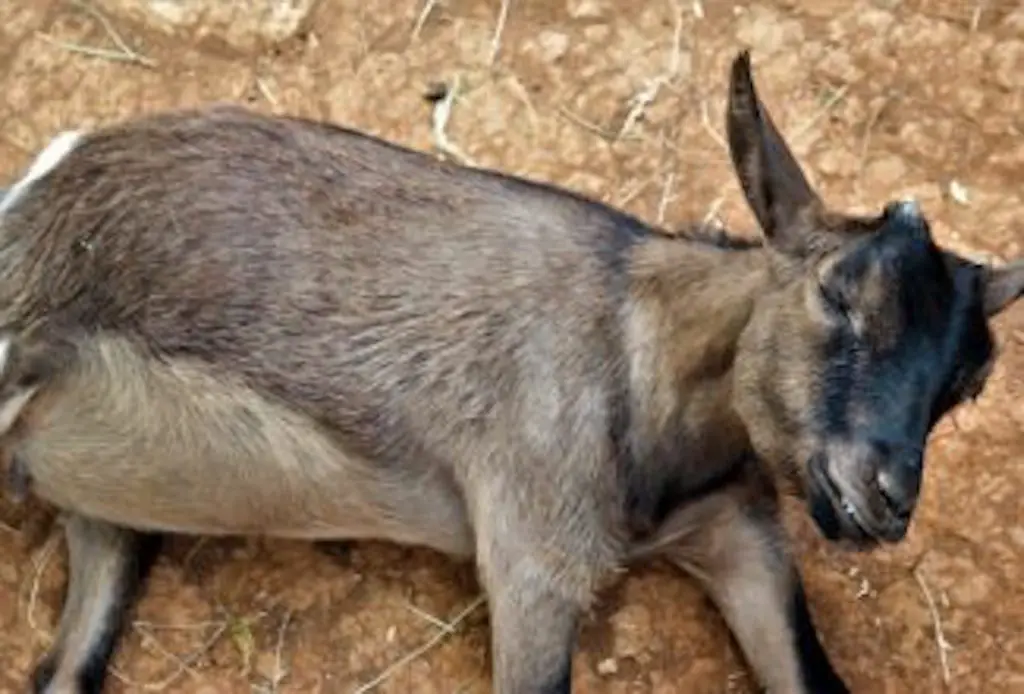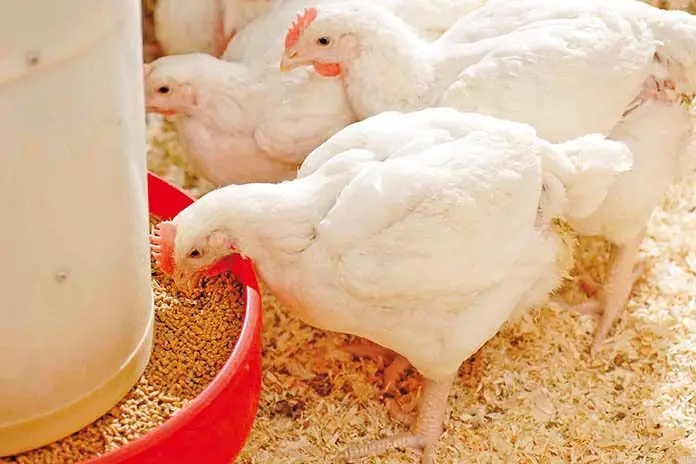Sheep are part of the ruminant family, meaning they have 4 stomach chambers that have the ability to digest a number of plants and grass, even those considered toxic without falling sick. Ivy is considered a toxic plant amongst many livestock but, there have been several reports that sheep can eat ivy. Below we discuss if this is true.
Contents
What Is Ivy?
Ivy is an evergreen woody Eurasian climbing plant that usually has leaves that are shiny and are five pointed in nature. Ivy is also known as Hedera helix and it usually thrives in cold or low light environments.
Can Sheep Eat Ivy
Yes, sheep can eat ivy because it can be digested by the rumen. Ivy should be given to sheep in moderate amounts since it can cause toxicity to sheep when consumed in excess. It is also worth noting that ivy cannot be used as a substitute for livestock feed mainly because it does not contain enough minerals and vitamins to meet the dietary needs of a sheep. Therefore, only give ivy to sheep as a snack.
Health Benefits Of Ivy To Sheep
Helps To Improve Appetite
One of the health benefits of ivy to sheep is that it helps to improve their appetite. A research conducted revealed that ivy helped ill ewes to regain their appetite. Ivy is highly palatable to sheep and when they consume it, signs of toxicity have never been recorded. So if you have sick ewes and you would want to get them up and eating again then you should definitely consider adding ivy to their diet.
Contains Anti-inflammatory And Antioxidant Properties
Another common health benefit of ivy to sheep is that it contains anti-inflammatory properties that help with wound healing. Furthermore, they also contain antioxidants that help to boost the immune system of the sheep. Therefore, if you want your sheep you remain healthy you definitely need to consider adding ivy to their diet.
How To Give Ivy To Sheep
The best way to give ivy to your sheep is as a snack. This means you need to harvest your ivy and make sure that are no pests on it. You can then cut the leaves into small pieces and then give them to your sheep. Make sure you give ivy to sheep in moderate amounts as it can lead to toxicity when consumed in excess.
Are Ivy Berries Toxic To Sheep?
Since sheep have the ability to eat ivy leaves its normal for one to assume that they can also consume ivy berries. However, studies show that ivy berries are more toxic as compared to the leaves. Therefore, it’s advisable that ivy berries should not be fed to sheep. There have also been many contradictions on this topic as some research revealed that sheep can eat ivy berries without showing signs of toxicity. Data provided indicated that when ivy berries are given in moderate amounts to sheep they will not lead to sickness. Therefore, if you are thinking of offering your sheep ivy berries you should introduce them in small quantities.
Can Lambs Eat Poison Ivy?
Yes, lambs can eat poison ivy mainly because it can be digested by the rumen. Poison ivy is known to be toxic to a number of livestock however, sheep are among the very few animals that are a bit resistant to the toxins in poison ivy. Although, lambs can eat poison ivy, it is important that you avoid replacing livestock feed with poison ivy as it does not meet the energy requirements of lambs
Do Sheep Love Ivy?
Yes, sheep like ivy, research shows that sheep can eat ivy without facing any health problems. Therefore, if you have some ivy in your garden you can always offer it to your sheep. It is worth highlighting that ivy berries can be toxic to sheep therefore, always offer them in moderation to your sheep.
Are Ivy Leaves Poisonous?
Yes, ivy leaves are mildly poisonous when consumed. However, sheep are not affected by the toxins found in this plant. This is because their digestive system is strong enough to handle the toxins.
Is English Ivy Toxic?
Yes, English ivy is toxic to many humans and animals besides sheep, goats and other ruminant animals. This is because a sheep’s digestive system can handle the toxins found in English ivy. English ivy also contains berries that are highly toxic and should never be eaten by humans.
Is English Ivy Toxic To Livestock?
Yes, English ivy is toxic to livestock. This is because it contains dangerous toxins which can lead to vomiting, diarrhea, excessive salivation or death. When livestock consume English ivy it’s important that you contact the vet as soon as possible so that he or she can try to reverse or minimize the effects. It is important to always check or inspect livestock pastures and ensure that there are no dangerous plants.
Is Ivy The Same As Poison Ivy?
No, Ivy is not the same as poison ivy although they look almost the same. Ivy is commonly referred to as English Ivy and it has leaves that have 5 lobed points and are darker in color. Poison ivy on the other hand has3 leaves and it looks a bit waxy.
Are Goats Immune To Poison Ivy?
To a certain extent, goats are immune to poison ivy. This is because they can actually get in contact with eat and even consume it without facing any side effects. Goats have 4 stomach chambers which enable them to effectively and efficiently digest poison ivy without facing any difficulties. It is worth noting that although goats are immune to poison ivy, their intake of this plant should be limited. This is because when consumed in excess it can lead to serious health problems in goats.
Conclusion
Sheep can eat ivy without facing any serious health problems. It is worth noting that while, ivy has potential health benefits to sheep, it should never be used as a substitute for livestock feed. This is because it does not contain all the vitamins and minerals needed by a sheep in order to grow.
